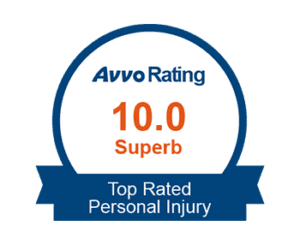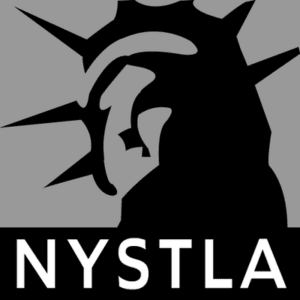Boat accidents on the Great Lakes differ greatly from car accidents on land. They occur in vast, open waters, delaying rescue efforts. Unique challenges include sudden waves, strong winds, and hidden underwater obstacles. Smaller lakes don’t face such issues. The Great Lakes are known for quick storms and rough waters. Their size means help is often far away. This demands more caution and preparedness from boaters.
New York has specific laws for Great Lakes boating accidents. Some rules are state-specific, while others are federal. Federal laws apply due to the lakes’ shared nature. This mix can make determining fault and compensation tricky, especially for inexperienced boaters. At, The Nicotra Law Firm, PC, we are here to guide you through the legal process and help you navigate the complexities of your case
Common Causes of Accidents
Boat accidents on the Great Lakes have various causes. Common ones include operator error, bad weather, equipment failure, and crowded waters. Operator error often involves speeding, lack of attention, or ignoring rules. Inexperienced boaters are at higher risk. They might not know all the rules or panic in bad weather.
Bad weather is a major concern. Conditions can change from calm to dangerous quickly. High winds, heavy rain, and sudden fog pose serious challenges. Waves can become dangerously high. Operators without proper knowledge are at greater risk.
Equipment failure is another frequent cause. Everything must work perfectly to ensure safety. This includes engines, steering, and safety gear. Overcrowded waters increase the risk too. In busy areas, operators must be extra careful.
Legal Responsibilities in New York
Boat operators in New York have specific legal responsibilities. Those born after a certain year must have a safety certificate. This shows they understand boating rules and safety. Operating without this certificate is illegal and punishable.
Operators must also follow laws about speed and alcohol. It’s illegal to operate a boat under the influence. Penalties include fines and jail time. Laws on speed limits and right-of-way apply too. Ignoring these can lead to being held responsible for accidents.
After an accident, operators must report it. This includes any injury, death, or significant damage. Reporting is crucial for insurance and legal claims. Leaving the scene without reporting can lead to penalties.
Determining Fault
Figuring out who is at fault in a Great Lakes boat accident can be complicated. Unlike car accidents, there are no clear signs in open waters. Often, the operator’s actions are scrutinized. Witness statements and evidence play a crucial role.
The boat’s condition also matters. Poor maintenance can lead to shared blame. The same goes for missing safety equipment.
Weather and other boats’ actions also factor in. Courts consider all these elements when determining fault.
Recovering Damages
Getting compensation after a boat accident can be complex. Victims may face various costs, including medical bills and lost income. In New York, proving the other party’s fault is key to recovering damages. If the at-fault party has insurance, it may cover some costs.
Victims often need to file a claim. This involves gathering evidence, which can be tough. Legal help is crucial in these cases.
Sometimes, multiple parties are responsible. In such cases, victims can claim damages from several parties. This increases the chances of full compensation but adds to the complexity.
Staying Safe
To stay safe, boaters should prepare in advance. This includes checking the weather, the boat, and safety gear. Knowing the rules is equally important. Boaters should inform someone on land about their plans. Carrying a communication device is also essential.
Taking a safety course, even if not required, is wise. These courses boost confidence and preparedness. They teach vital skills for handling emergencies.
Challenges of Handling Boat Accident Cases in New York
Boat accidents on the Great Lakes pose unique legal issues. Unlike car accidents, which have ample documentation, boat accidents often lack witnesses, photos, and signals. Sometimes, help arrives late, leaving only the involved parties to explain. This absence of oversight complicates analysis.
The Great Lakes extend into areas beyond New York’s jurisdiction, including federal and Canadian waters. Accidents near these borders create confusion about which laws apply. Different laws affect responsibilities, claims, and damage amounts. This situation leads to complex cases requiring cooperation between jurisdictions.
Gathering evidence after a boat accident involves collecting statements, photos, and reports. However, this is challenging on water. Waves, winds, and weather can scatter evidence. Witnesses might leave the scene. Lawyers must collaborate with specialists to gather evidence from various sources.
Related Videos
How should I choose a personal injury attorney for my claim?
Insurance companies dirty tricks
Understanding Maritime and New York State Laws in Boat Accidents
In New York, some boat accidents fall under both state and maritime laws. Maritime laws apply to navigable waters like the Great Lakes. They govern navigation, safety, and ownership. Maritime law requires extra safety measures. Violating these rules can lead to penalties.
Maritime laws hold boat owners accountable for negligence. This includes poor maintenance or lack of safety gear. These laws protect all users of navigable waters. They take precedence over state laws in conflicts, especially in open waters. This protection allows victims to seek claims under maritime law when state laws fall short.
Lawyers must know both laws to handle cases effectively. Different laws affect compensation and fault. This is crucial in major accidents or those with multiple boats. Understanding these rules is key to finding the best approach.
Types of Damages in a Great Lakes Boat Accident
In a Great Lakes boat accident, victims can seek various damages. These include medical expenses, lost wages, property damage, and pain and suffering.
Medical expenses cover all treatment costs, including surgeries and medications. Boat accidents can lead to severe injuries, making compensation vital.
Lost wages compensation is crucial for those unable to work. It covers income lost during recovery. For severe injuries, future lost wages can also be claimed.
Property damage compensation applies to damaged or destroyed boats and items. Victims should keep records of lost items and their values.
Pain and suffering damages account for emotional and physical hardships. Courts consider the extent of injuries and changes to the victim’s life when calculating these damages.
How Boating Insurance Affects Compensation
Boating insurance significantly impacts compensation in accidents. It’s not mandatory in New York, but many boaters choose it for protection. Policies typically cover passenger injuries, boat damage, and liability. Having insurance can speed up claims, avoiding lengthy court battles.
However, insurance policies have limits. Severe accidents may exceed these limits, requiring additional claims or court action.
Insurance companies often resist paying large sums. They might argue that victims share the blame. This makes getting full compensation more challenging. Legal help ensures fair treatment and proper compensation.
Safety Tips for Boaters on New York’s Great Lakes
Boaters can take steps to ensure safety. Checking the weather is crucial. Conditions can change quickly. Avoiding bad weather is key.
Regular maintenance is another vital step. Inspecting engines, fuel lines, and safety gear can prevent accidents.
Creating a safety plan and informing someone on land is essential. This plan should include the route and estimated return.
Taking a boating safety course is also recommended. These courses cover important rules and emergency responses.
Preparing for Legal Action After a Boat Accident
After a boat accident, victims should start preparing for legal action immediately. This includes collecting evidence, documenting injuries, and keeping records of treatments and expenses. Witness contact information, photos of the scene, and damage records are vital.
Reporting the accident is crucial. In New York, serious accidents must be reported to law enforcement. This creates an official record, important for claims.
After reporting, contacting a lawyer is advisable. A lawyer helps determine compensation and guides through the legal process.
Why Legal Help Is Crucial in Great Lakes Boat Accidents
Handling a Great Lakes boat accident without legal help is challenging. The mix of state and federal laws is complex. A lawyer helps make sense of the laws, collect evidence, and protect rights.
If you or a loved one has been in a boat accident on the Great Lakes, you don’t have to face it alone. The Nicotra Law Firm, PC is ready to help you seek justice. We understand the challenges in boat accident cases and are dedicated to getting you the compensation you deserve. Contact us to discuss your case, explore your options, and start resolving your claim. Let us work to achieve the best outcome for you.








